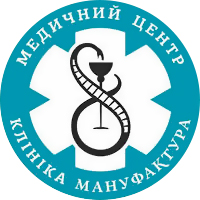Prostate Cancer Treatment
Prostate cancer is a malignant growth that forms in the prostate gland due to abnormal changes in the cells. Prostate cancer is the third most common cancer among men but with early detection and the right curing, it’s often highly treatable. At our Cancer Center in Kyiv we provide a full cycle of prostate cancer treatment. With the team of qualified doctors and extensive experience we integrate advanced medical methods for more effective cancer care. We follow international clinical protocols and focus on achieving excellent treatment results for every patient.
Prostate Cancer Therapies
Prostate cancer typically develops slowly. However, like all cancers, it remains a complex disease. Depending on the stage and risk grade, treatment may require a combination of several therapies, such as:
- Surgery
- Radiation therapy
- Hormone therapy
- Chemotherapy
- Targeted therapy
- Immunotherapy
When detected early, prostate cancer can often be treated successfully with surgery, radiation therapy, or a combination of both. In more advanced cases, hormone therapy is usually added to the treatment plan.
For patients with low-risk prostate cancer, immediate treatment may not be necessary. Instead, doctors may recommend active surveillance — a closely monitored approach that allows treatment to begin only if the disease shows signs of progression.
In advanced-staged prostate cancer, treatment often involves hormone therapy and chemotherapy. Depending on the case, targeted therapy or immunotherapy may also be added to the treatment plan if individually recommended.
Hormone therapy is frequently used in combination with other cancer treatments, as a multi-faceted approach often leads to better outcomes. For instance, in cases of early-stage or regional prostate cancer, external beam radiation therapy is commonly paired with hormone therapy. Radiation therapy targets the prostate and nearby lymph nodes, while hormone therapy works by reducing testosterone levels helping to slow tumor growth and prevent the disease from progressing.
At the Medical Center "Manufactura Clinic", we provide complete treatment courses for prostate cancer at any stage, as well as certain therapies or active surveillance programs for prostate cancer.
How to Receive Therapy for Prostate Cancer at the Medical Center "Manufactura Clinic"
According to international oncology standards, cancer treatment is never prescribed by a single physician. Multidisciplinary teams (MDTs) are a well-established approach in oncology care, bringing together specialists from various fields – such as medical oncologist, radiation oncologist, pathologist, and surgical oncologists – to collaborate on patient treatment plan in each case. In cases of prostate cancer, the MDTs may also involve urologists and nephrologists, depending on the patient’s individual condition. Even when the diagnosis is the same, cancer behaves differently in every patient which is why tailored treatment planning is crucial for achieving the best possible outcomes.
At our clinic, the Multidisciplinary team is initiated by a clinical oncologist or medical oncologist, whom the patient sees during the initial consultation. During this visit, the doctor conducts a physical examination, reviews the patient’s medical history and existing test results, and may order additional diagnostic examinations if more information is needed to confirm or clarify the diagnosis. The oncology team is typically convened the same day or within the following two days – once we have all the necessary medical data. The team’s conclusion is a detailed, step-by-step treatment plan, which is shared with the patient during the next appointment.
For prostate cancer treatment, or for the diagnosis of prostate neoplasms or dysplasia, patients can schedule a consultation with either a urologist or a clinical oncologist at our clinic.
If you already have results from previous consultations, lab tests, or diagnostic imaging, please bring them to your appointment. This will help our doctors better understand your case and make an informed decision about your treatment.
Active Surveillance for Prostate Cancer
Not all prostate cancers are the same. Some tumors grow very slowly, and in such cases, the doctor may recommend active surveillance rather than immediate treatment. This approach involves regular monitoring of the tumor and tracking prostate-specific antigen (PSA) levels over time. The follow-up schedule with a urologist during active surveillance is tailored individually, but typically includes:
- every 6 months - PSA blood test
- once a year - Digital rectal exam (DRE)
- once a year to once every 3 years – Prostate biopsy and transrectal ultrasound
Active surveillance is usually recommended when:
- the tumor is localized and considered low-risk, as confirmed by histological analysis
- the tumor is small and confined within the prostate
- the patient has no symptoms or discomfort
It’s important for patients to understand that active surveillance requires personal responsibility in strictly following the monitoring schedule. Only through regular and thorough examinations can any signs of tumor progression be detected early – allowing timely transition to active cancer treatment, if necessary.
Make an appointment
Your name
Phone number
Direction
Desired date
Comment










